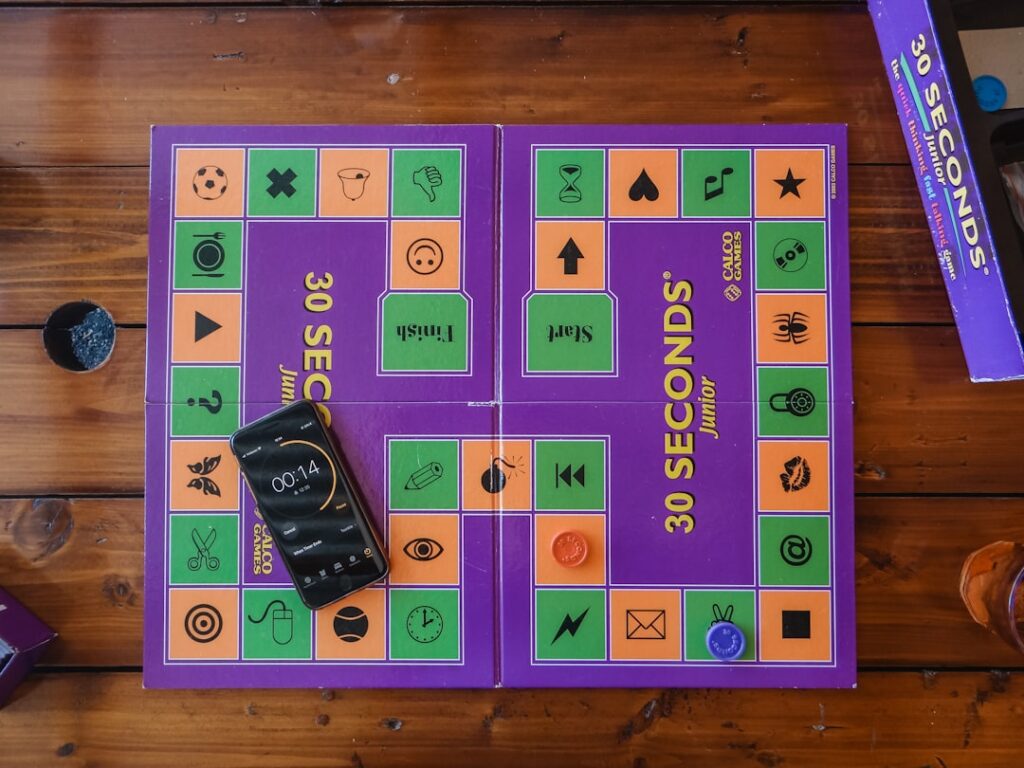Stress is a physiological and psychological response to challenging or demanding situations in life. It can be triggered by various factors, including work-related pressures, interpersonal relationships, financial difficulties, and health issues. When an individual experiences stress, the body releases hormones such as adrenaline and cortisol, which activate the “fight or flight” response.
While this response is beneficial in acute danger, prolonged exposure to stress can have negative consequences on both physical and mental health. Long-term or chronic stress has been associated with numerous health problems, including hypertension, cardiovascular disease, obesity, diabetes, and depression. It can also compromise the immune system, increasing susceptibility to various illnesses.
Furthermore, stress can disrupt sleep patterns, leading to fatigue and irritability. Understanding the impact of stress on health is essential for implementing effective stress management strategies. Stress can manifest in various ways, including physical symptoms such as headaches, muscle tension, and gastrointestinal issues, as well as emotional symptoms like anxiety, irritability, and mood fluctuations.
Recognizing these signs early is crucial for preventing the escalation of stress-related health problems. By comprehending the effects of stress on the body and mind, individuals can take proactive measures to mitigate its impact and enhance overall well-being.
Key Takeaways
- Stress can have a significant impact on physical and mental health, leading to a range of issues such as anxiety, depression, and high blood pressure.
- Identifying personal stress triggers is crucial in managing stress effectively, as it allows individuals to address the root causes of their stress.
- Developing healthy coping mechanisms, such as mindfulness, deep breathing, and journaling, can help individuals manage and reduce their stress levels.
- Prioritizing self-care and relaxation is essential for managing stress, and can include activities such as meditation, spending time with loved ones, and engaging in hobbies.
- Incorporating physical activity into daily routine can help reduce stress and improve overall well-being, with activities such as walking, yoga, and dancing being beneficial.
- Establishing boundaries and learning to say no can help individuals manage their stress by reducing overwhelming commitments and responsibilities.
- Seeking professional help and support, such as therapy or counseling, can provide individuals with the tools and resources to effectively manage and reduce their stress levels.
Identifying Personal Stress Triggers
Recognizing External Stress Triggers
By recognizing these triggers, we can take proactive steps to address them and minimize their impact on our well-being. In addition to external stressors, internal factors such as perfectionism, self-criticism, and negative thinking patterns can also contribute to stress.
Identifying Internal Stress Triggers
By becoming aware of these internal stress triggers, we can work on changing our mindset and developing healthier coping mechanisms. Keeping a stress journal can be a helpful tool in identifying patterns and triggers that contribute to our stress levels. By tracking our thoughts, emotions, and physical symptoms, we can gain valuable insights into the sources of our stress and take steps to address them.
Managing Stress for a Healthier Life
It’s important to remember that not all stress is bad; some level of stress is necessary for motivation and productivity. However, when stress becomes overwhelming and chronic, it can have serious consequences for our health and well-being. By identifying our personal stress triggers, we can take proactive steps to manage them and create a healthier and more balanced life.
Developing Healthy Coping Mechanisms

When faced with stress, it’s important to have healthy coping mechanisms in place to help us manage our emotions and navigate challenging situations. Unhealthy coping mechanisms such as overeating, excessive drinking, or avoidance can provide temporary relief but ultimately exacerbate the problem. Developing healthy coping mechanisms is essential for long-term stress management and overall well-being.
One effective coping mechanism is practicing mindfulness and relaxation techniques such as deep breathing, meditation, and yoga. These practices can help calm the mind and reduce the physical symptoms of stress. Engaging in hobbies and activities that bring joy and relaxation can also be beneficial in managing stress.
Whether it’s reading, gardening, or painting, finding time for activities that bring us pleasure can help alleviate stress and improve our mood. Another important coping mechanism is maintaining a strong support network. Talking to friends, family members, or a therapist about our feelings can provide valuable emotional support and perspective.
Building strong connections with others can help us feel less isolated and better equipped to handle life’s challenges. Additionally, setting realistic goals and priorities can help us feel more in control of our lives and reduce feelings of overwhelm. By developing healthy coping mechanisms, we can build resilience and better navigate the ups and downs of life.
It’s important to remember that managing stress is an ongoing process, and it’s okay to seek help when needed.
Prioritizing Self-Care and Relaxation
| Self-Care Activity | Frequency | Duration |
|---|---|---|
| Exercise | 3 times a week | 30 minutes |
| Meditation | Everyday | 15 minutes |
| Reading | Everyday | 30 minutes |
| Bath | Once a week | 1 hour |
In today’s fast-paced world, it’s easy to neglect self-care and relaxation in favor of productivity and achievement. However, prioritizing self-care is essential for managing stress and maintaining overall well-being. Self-care encompasses a wide range of activities that nurture our physical, emotional, and mental health.
This can include getting enough sleep, eating nutritious foods, engaging in regular exercise, and setting aside time for relaxation. Taking time for relaxation is crucial for reducing stress levels and promoting a sense of calm. This can involve activities such as taking a warm bath, practicing mindfulness meditation, or simply spending time in nature.
Engaging in activities that bring us joy and relaxation can help recharge our batteries and improve our ability to cope with life’s challenges. In addition to relaxation, self-care also involves setting boundaries and learning to say no when necessary. It’s important to prioritize our own needs and well-being, even if it means disappointing others at times.
Learning to assertively communicate our limits and prioritize self-care is essential for maintaining balance in our lives. Prioritizing self-care is not selfish; it’s a necessary component of maintaining good physical and mental health. By making self-care a priority, we can better manage stress and improve our overall quality of life.
Incorporating Physical Activity into Daily Routine
Regular physical activity is not only important for physical health but also plays a crucial role in managing stress and promoting mental well-being. Exercise has been shown to reduce levels of stress hormones such as cortisol and increase the production of endorphins, which are natural mood lifters. Incorporating physical activity into our daily routine can help us better cope with the demands of life and reduce the negative effects of chronic stress.
Finding an exercise routine that we enjoy is key to making physical activity a sustainable part of our lives. Whether it’s going for a walk, practicing yoga, or participating in team sports, finding activities that we find enjoyable can make it easier to stick with an exercise routine. Regular exercise not only helps reduce stress but also improves sleep quality, boosts self-esteem, and enhances overall mood.
Incorporating physical activity into our daily routine doesn’t have to be time-consuming or strenuous; even small amounts of exercise can have significant benefits for managing stress. Taking the stairs instead of the elevator, going for a short walk during lunch break, or doing a quick home workout are all simple ways to incorporate physical activity into our day. By making physical activity a regular part of our lives, we can better manage stress levels and improve our overall well-being.
It’s important to find activities that we enjoy and make exercise a priority in order to reap the many benefits it offers for managing stress.
Establishing Boundaries and Saying No

Recognizing the Importance of Prioritizing Our Own Needs
It’s common to feel guilty or selfish when saying no to others’ requests; however, it’s important to recognize that prioritizing our own needs is essential for managing stress and maintaining good mental health. Learning to assertively communicate our boundaries without feeling guilty is an important skill that can help us navigate life’s demands more effectively.
Setting Boundaries and Prioritizing Self-Care
Establishing boundaries also involves recognizing when we need time for ourselves and setting aside regular periods for relaxation and self-care. This may involve scheduling regular “me time” in our calendars or setting aside specific days for rest and rejuvenation. By prioritizing our own needs and setting boundaries with others, we can better manage stress levels and prevent burnout.
Creating a Healthier Balance in Life
Learning to say no doesn’t mean being unhelpful or unsupportive; it means recognizing our own limits and respecting our own well-being. By establishing boundaries and learning to say no when necessary, we can create a healthier balance in our lives and better manage the impact of stress.
Seeking Professional Help and Support
While self-help strategies are valuable for managing stress, there are times when professional help may be necessary. Seeking support from a therapist or counselor can provide valuable guidance and tools for managing stress effectively. A mental health professional can help us identify the root causes of our stress, develop healthy coping mechanisms, and work through any underlying issues that may be contributing to our stress levels.
In addition to therapy, support groups can also be beneficial for managing stress by providing a sense of community and understanding from others who may be experiencing similar challenges. Connecting with others who understand what we’re going through can provide valuable emotional support and perspective. It’s important to remember that seeking professional help is not a sign of weakness but rather a proactive step towards improving our mental well-being.
Just as we would seek medical help for a physical ailment, seeking support for mental health concerns is equally important. In conclusion, managing stress is an ongoing process that requires self-awareness, healthy coping mechanisms, self-care practices, physical activity, boundary setting, and seeking professional support when needed. By taking proactive steps to manage stress effectively, we can improve our overall well-being and lead healthier, more balanced lives.
If you’re looking for some stylish and practical ways to help manage your stress, check out the article “10 Handmade Bags That Will Help You Stay Organized and Stress-Free” from Handmade Bag Shop. This article offers a variety of handmade bags that can help you stay organized and reduce the stress of constantly searching for your belongings. Whether you need a new tote for work or a backpack for weekend adventures, these bags can help you feel more in control and less overwhelmed.
FAQs
What are stress management strategies?
Stress management strategies are techniques and activities that individuals can use to reduce and cope with stress in their lives. These strategies can help to improve mental and physical well-being.
What are some common stress management strategies?
Common stress management strategies include exercise, relaxation techniques (such as deep breathing or meditation), time management, setting boundaries, seeking social support, and seeking professional help if needed.
How can exercise help with stress management?
Exercise can help with stress management by releasing endorphins, which are natural mood lifters. It can also help to reduce muscle tension and improve sleep, all of which can help to reduce stress levels.
What are some relaxation techniques that can help with stress management?
Relaxation techniques such as deep breathing, progressive muscle relaxation, meditation, and yoga can help to calm the mind and reduce stress levels.
How can time management help with stress management?
Effective time management can help individuals prioritize tasks, set realistic goals, and reduce feelings of being overwhelmed, which can in turn reduce stress levels.
Why is seeking social support important for stress management?
Seeking social support from friends, family, or support groups can provide individuals with a sense of belonging and connection, which can help to reduce feelings of isolation and stress.
When should someone seek professional help for stress management?
If an individual is feeling overwhelmed by stress and is unable to cope on their own, it may be beneficial to seek professional help from a therapist, counselor, or mental health professional.





